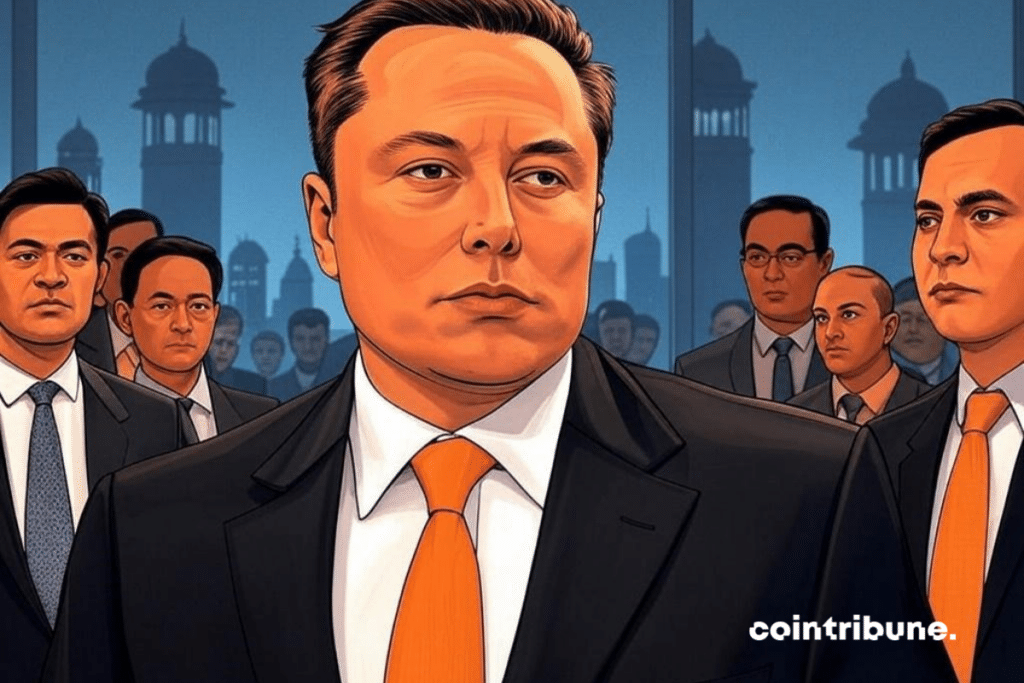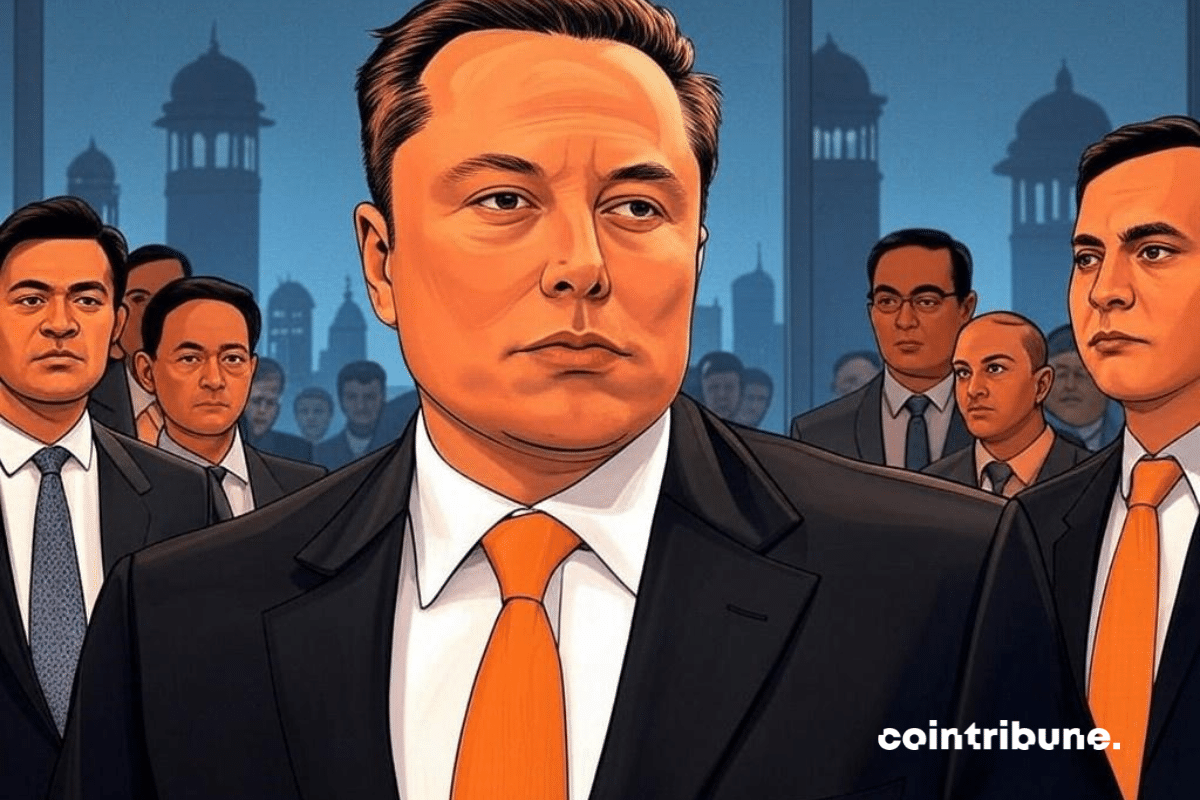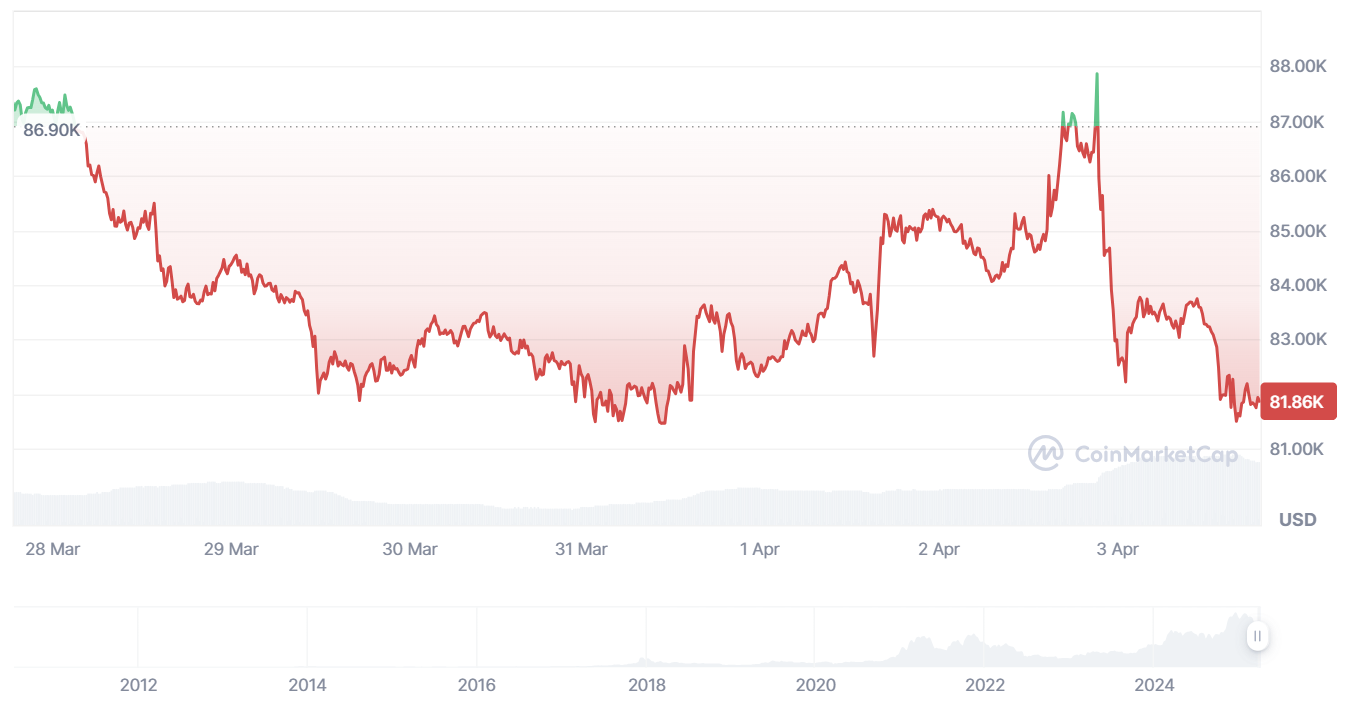 CaryptosHeadlines Media Has Launched Its Native Token CHT.
Airdrop Is Live For Everyone, Claim Instant 5000 CHT Tokens Worth Of $50 USDT.
Join the Airdrop at the official website,
CryptosHeadlinesToken.com
CaryptosHeadlines Media Has Launched Its Native Token CHT.
Airdrop Is Live For Everyone, Claim Instant 5000 CHT Tokens Worth Of $50 USDT.
Join the Airdrop at the official website,
CryptosHeadlinesToken.com
Elon Musk has just changed his mind on the subject of immigration. He has engaged in a public battle to defend H1-B visas. The billionaire, a prominent figure in the conservative movement, now strongly asserts that these visas are “essential for America to keep winning.”


Musk’s turnaround on immigration
This position has triggered a true civil war within the conservative movement. Faced with criticism, Musk reacted vehemently, even declaring that he “would go to war on this issue in a way that you cannot understand”. To justify his position, he reminds us that his own presence in the United States, as well as that of many key talents from SpaceX and Tesla, is due to the H1-B program.
Donald Trump himself seems to align with this position, declaring to the New York Post that he is a “staunch supporter of H1-B visas” which he uses extensively in his own companies. This unexpected support from two major figures in the MAGA movement has provoked the anger of traditional conservatives like Steve Bannon, who accuses Musk of betraying American workers.
This controversy perfectly illustrates the analysis of Curtis Yarvin, (an American tech thinker) on the true motivations behind skilled immigration: an alliance between the interests of big business and a certain technocratic vision of excellence.
The right divides following Musk’s positions
His reflection comes in a tense context, as the American right is tearing itself apart over the issue of Indian visas and artificial intelligence threatening to disrupt the labor market.
The recent electoral victory of the American “New Right” has not been enough to maintain unity within the movement. The debate over Indian visas has dug a deep chasm between the rationalists and traditionalists of the movement. For Yarvin, this division illustrates the limits of the traditional liberal framework in which both camps remain trapped.
“Liberalism as we know it is only 250 years old”, he reminds, “a lifespan shorter than some Chinese dynasties”.
The State as a sovereign enterprise
Yarvin proposes a radically different vision of the modern state. For him, the government should be considered a sovereign enterprise, owner of its territory and its people. This approach contrasts with the traditional liberal vision where the state exists to serve its citizens.
“The state owns its subjects”, he asserts bluntly, acknowledging the shocking nature of this position for modern thought. He considers this vision closer to that of Plato than to current liberalism. To him, the nation is the people, and the state is their legitimate owner – of lands, structures, and people.
This ownership implies an exclusive domination. If certain branches of the state can sometimes protect the subject from other branches, the state as a whole can do whatever it wants with any of its subjects. This is, according to Yarvin, the very definition of sovereignty.
Should the State take care of its national human capital?
For Yarvin, the goal of a state should not be to maximize GDP, but to optimize the value of its human capital. He compares the current situation in the United States to “a rental car that nobody is changing the oil of.”
This vision implies that the state must protect and develop its human capital. It is responsible for its appreciation or depreciation. In fact, work, particularly complex and stimulating work that pushes the boundaries of a trade or skill, is what makes humans more valuable.
A critique of skilled immigration
Yarvin’s position on skilled immigration stands in direct opposition to that of his friend Elon Musk. He believes that the H1-B visa program is a “band-aid” that masks America’s inability to develop its own human capital.
“We are pumping all the appreciation energy into these H1-Bs, which are human assets of another government, while our own human capital rots on the couch”, he denounces. This approach, he argues, harms American workers who find themselves underemployed while companies import foreign talent.
He also highlights the absurdity of the situation where a third world country loses its most precious talents when it needs them much more than the United States does.
The motivations behind immigration
Yarvin identifies two main motivations behind immigration policy: the profits of businesses and political ambition. At best, it is a way for companies to save money by using cheaper foreign labor. At worst, it is a project aimed at empowering a small “meritocratic” oligarchy over the entire society.
He suggests that companies should realize that they can still win by being the best, as long as their competitors also use national labor. As for the oligarchy, his provocative suggestion is that it “should be deported to Mars.”
Yarvin concludes with a warning about artificial intelligence, which he compares to “extraterrestrial immigration.” In five to ten years, he warns, AI could render a large part of the workforce obsolete, including skilled labor.
“It’s a greater destroyer of labor demand than the loom and steam engine combined,” he claims. AI will destroy the demand for humans in the developed world, the developing world, and probably even on Mars.
Faced with this challenge, he proposes a radical solution: deliberately restricting technology to maintain the demand for quality human labor.
Towards an anti-tech revolution?
The alternative to this technological restriction would be, according to Yarvin, a “fully automated luxurious communism” where total meaninglessness would provoke a moral then political collapse of humanity.
This political collapse could lead to a civilizational suicide, “a subjugation by barbarians, and a return to pre-industrial technological levels.”
Yarvin’s reflection highlights the major challenges facing modern societies: how to manage human capital in a globalized world where machines are beginning to replace humans in all high value-added activities.
Maximize your Cointribune experience with our “Read to Earn” program! For every article you read, earn points and access exclusive rewards. Sign up now and start earning benefits.


Chaque jour, j’essaie d’enrichir mes connaissances sur cette révolution qui permettra à l’humanité d’avancer dans sa conquête de liberté.
Disclaimer:
The contents and products mentioned on this page are in no way approved by Cointribune and should not be interpreted as falling under its responsibility.
Cointribune strives to communicate all useful information to readers, but cannot guarantee its accuracy and completeness. We invite readers to do their research before taking any action related to the company and to take full responsibility for their decisions. This article should not be considered as investment advice, an offer, or an invitation to purchase any products or services.
Investment in digital financial assets carries risks.












